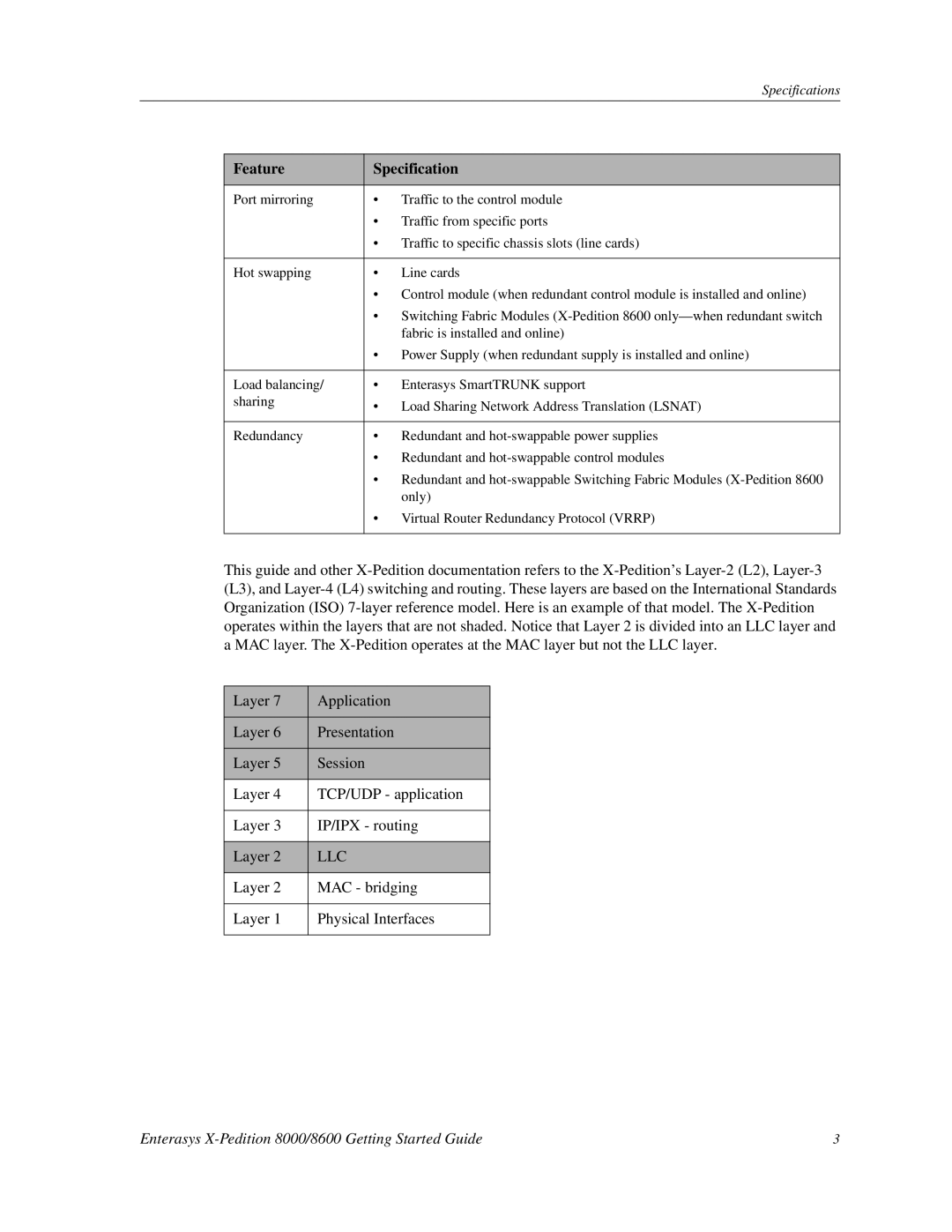Specifications
Feature | Specification | |
|
|
|
Port mirroring | • | Traffic to the control module |
| • | Traffic from specific ports |
| • | Traffic to specific chassis slots (line cards) |
|
|
|
Hot swapping | • | Line cards |
| • | Control module (when redundant control module is installed and online) |
| • | Switching Fabric Modules |
|
| fabric is installed and online) |
| • | Power Supply (when redundant supply is installed and online) |
|
|
|
Load balancing/ | • | Enterasys SmartTRUNK support |
sharing | • | Load Sharing Network Address Translation (LSNAT) |
| ||
|
|
|
Redundancy | • | Redundant and |
| • | Redundant and |
| • | Redundant and |
|
| only) |
| • | Virtual Router Redundancy Protocol (VRRP) |
|
|
|
This guide and other
Layer 7 | Application |
|
|
Layer 6 | Presentation |
|
|
Layer 5 | Session |
|
|
Layer 4 | TCP/UDP - application |
|
|
Layer 3 | IP/IPX - routing |
|
|
Layer 2 | LLC |
|
|
Layer 2 | MAC - bridging |
|
|
Layer 1 | Physical Interfaces |
|
|
Enterasys | 3 |
